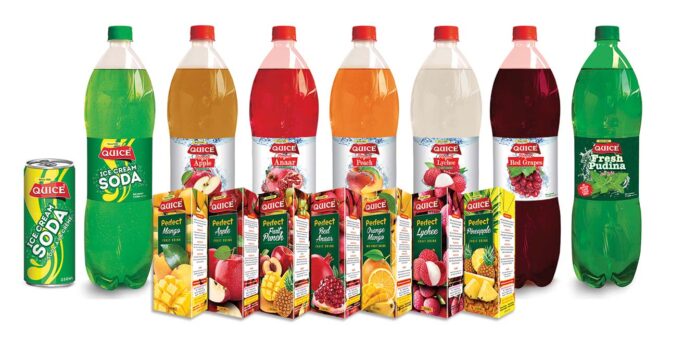Quice Food Industries has posted another year of red ink, with the latest numbers showing how fragile the brand’s economics have become despite a small rise in sales. The company’s FY24 unconsolidated results show net sales edging up to Rs903m from Rs838m, an 8% increase, but that lift did not translate into healthier profits. Gross profit was largely flat at Rs126m (up 2%), with gross margin slipping to 14.0% from 14.8%. Below the line it was more sobering: operating loss widened to Rs23m from Rs8m, EBITDA fell 70% to Rs6m, and profit after tax deteriorated to a loss of Rs27m from a Rs12m loss the year before. EPS went deeper into the red at Rs-0.3 versus Rs-0.1 a year earlier. Costs rising faster than revenue, and very little capacity to push through price increases without sacrificing volume.
The quarterly snapshot for 3QFY25 repeats the pattern. Sales rose a modest 3% year-on-year to Rs338m, yet gross profit fell 10% to Rs62m and gross margin compressed to 18.3% from 21.1%. Operating profit slid 31% to Rs18m, and profit after tax was down 43% to Rs13m, with EPS at Rs0.1 compared with Rs0.2 in the same quarter last year. The company is selling a bit more, but earning less on each rupee of sales – a textbook sign that pricing power is weak.
Management’s commentary helps explain why this is happening. Utility and ocean-freight costs have escalated, the purchase price of sugar has risen, and margins on tetra-packed products are thin. Meanwhile, local sales were dented by the imposition of sales tax and a federal excise duty in mid-Nov 2023, and syrup demand fell because Ramadan came in winter, when consumption of chilled sharbat naturally slows. In other words: costs up, pricing constrained, and demand for a flagship category seasonally softer. It is not the mix a small-cap food company wants. The content in this publication is expensive to produce. But unlike other journalistic outfits, business publications have to cover the very organizations that directly give them advertisements. Hence, this large source of revenue, which is the lifeblood of other media houses, is severely compromised on account of Profit’s no-compromise policy when it comes to our reporting. No wonder, Profit has lost multiple ad deals, worth tens of millions of rupees, due to stories that held big businesses to account. Hence, for our work to continue unfettered, it must be supported by discerning readers who know the value of quality business journalism, not just for the economy but for the society as a whole.To read the full article, subscribe and support independent business journalism in Pakistan









